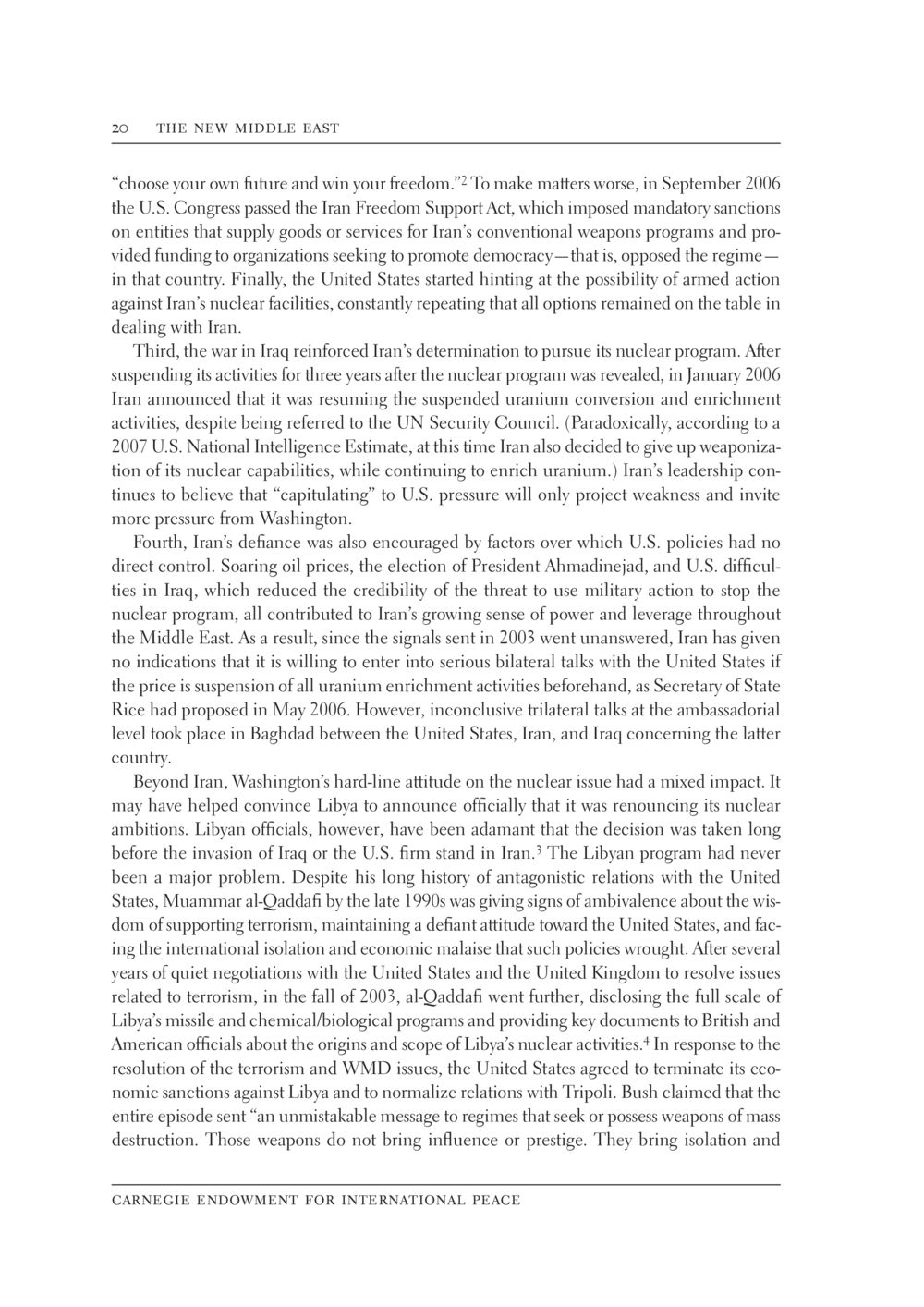The Complex Dynamics of Iran's Nuclear Aspirations : หน้า 26/52
The New Middle East : หน้า 26/52 Explore the intricate relationships and policies influencing Iran's pursuit of nuclear capabilities amidst international tensions.
0 ครั้ง

สรุปเนื้อหา
The text discusses Iran's unwavering commitment to its nuclear program, spurred by various factors, including U.S. sanctions, the Iraq war, and surging oil prices. Despite hints of military action from the U.S., Iran's leadership perceives capitulation as a sign of weakness. The dynamics of U.S. foreign policy led to mixed outcomes, including Libya's decision to abandon its nuclear ambitions, showcasing the complex interplay of power, negotiation, and strategic decision-making in the region. Relevant discussions also took place between the U.S., Iran, and Iraq. For further information, visit dmc.tv.
หัวข้อประเด็น
-Iran's nuclear program
-U.S. foreign policy
-Middle East geopolitics
-Impact of sanctions
-Libya's disarmament discussion
ข้อความต้นฉบับในหน้า
"choose your own future and win your freedom."2 To make matters worse, in September 2006 the U.S. Congress passed the Iran Freedom Support Act, which imposed mandatory sanctions on entities that supply goods or services for Iran’s conventional weapons programs and provided funding to organizations seeking to promote democracy—that is, opposed the regime—in that country. Finally, the United States started hinting at the possibility of armed action against Iran’s nuclear facilities, constantly repeating that all options remained on the table in dealing with Iran.
Third, the war in Iraq reinforced Iran’s determination to pursue its nuclear program. After suspending its activities for three years after the nuclear program was revealed, in January 2006 Iran announced that it was resuming the suspended uranium conversion and enrichment activities, despite being referred to the UN Security Council. (Paradoxically, according to a 2007 U.S. National Intelligence Estimate, at this time Iran also decided to give up weaponization of its nuclear capabilities, while continuing to enrich uranium.) Iran’s leadership continues to believe that “capitulating” to U.S. pressure will only project weakness and invite more pressure from Washington.
Fourth, Iran’s defiance was also encouraged by factors over which U.S. policies had no direct control. Soaring oil prices, the election of President Ahmadinejad, and U.S. difficulties in Iraq, which reduced the credibility of the threat to use military action to stop the nuclear program, all contributed to Iran’s growing sense of power and leverage throughout the Middle East. As a result, since the signals sent in 2003 went unanswered, Iran has given no indications that it is willing to enter into serious bilateral talks with the United States if the price is suspension of all uranium enrichment activities beforehand, as Secretary of State Rice had proposed in May 2006. However, inconclusive trilateral talks at the ambassadorial level took place in Baghdad between the United States, Iran, and Iraq concerning the latter country.
Beyond Iran, Washington’s hard-line attitude on the nuclear issue had a mixed impact. It may have helped convince Libya to announce officially that it was renouncing its nuclear ambitions. Libyan officials, however, have been adamant that the decision was taken long before the invasion of Iraq or the U.S. firm stand in Iran.3 The Libyan program had never been a major problem. Despite his long history of antagonistic relations with the United States, Muammar al-Qaddafi by the late 1990s was giving signs of ambivalence about the wisdom of supporting terrorism, maintaining a defiant attitude toward the United States, and facing the international isolation and economic malaise that such policies wrought. After several years of quiet negotiations with the United States and the United Kingdom to resolve issues related to terrorism, in the fall of 2003, al-Qaddafi went further, disclosing the full scale of Libya’s missile and chemical/biological programs and providing key documents to British and American officials about the origins and scope of Libya’s nuclear activities.4 In response to the resolution of the terrorism and WMD issues, the United States agreed to terminate its economic sanctions against Libya and to normalize relations with Tripoli. Bush claimed that the entire episode sent “an unmistakable message to regimes that seek or possess weapons of mass destruction. Those weapons do not bring influence or prestige. They bring isolation and
CARNEGIE ENDOWMENT FOR INTERNATIONAL PEACE
หน้าหนังสือทั้งหมด
หนังสือที่เกี่ยวข้อง
Load More




















































